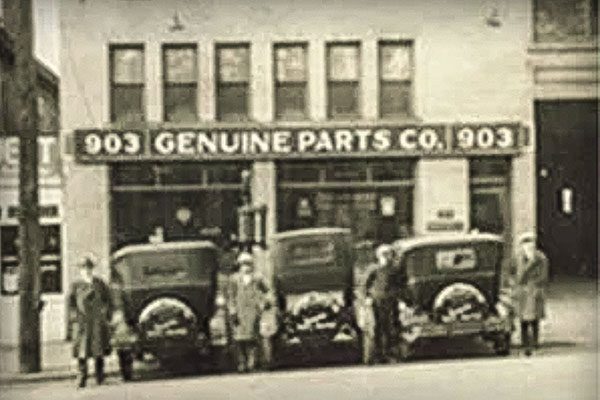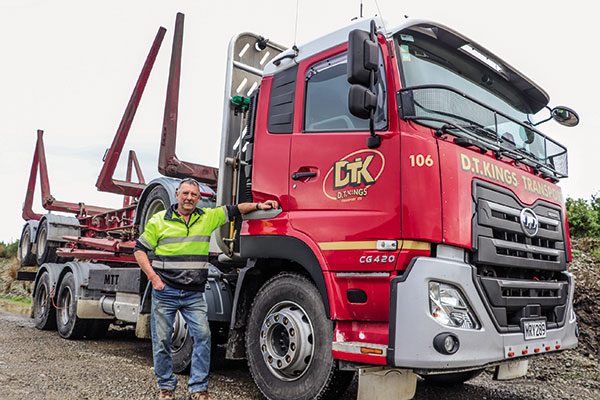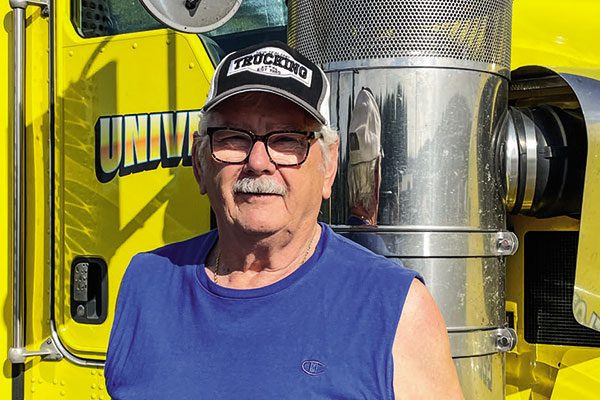People and purpose
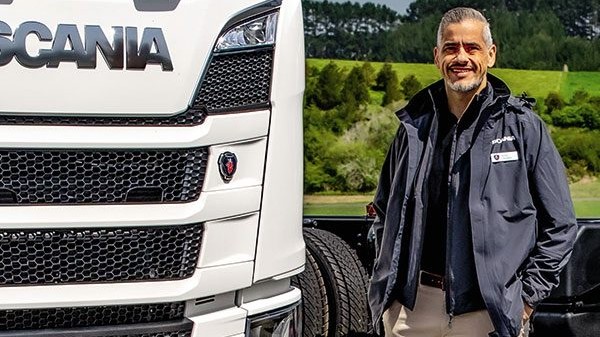
Rafael Alvarenga has moved on to take up a role with Traton Group in Latin America, and Victor Carvalho has arrived from Scania in Portugal to pull the big levers here. While his predecessor continued the brand’s wave of new product success, Victor will be the first to face a generation of trucks motoring deeper into their life cycle, as well as the rise of the alternative machines. Once again – has Södertälje picked the right man for the job?
Sitting across from me is new Scania CEO for New Zealand, 44-year-old Victor Carvalho. While his posting was announced in July, the man himself only landed the afternoon before the Scania New Zealand drive event at Hampton Downs in early October. Unlike Rafa, he didn’t arrive to a country in lockdown; he was there amongst the customers, and he was polished. Not that Victor’s Kiwi baptism has been without its own share of heat. Eight-and-a-half-month-old daughter Carolina needed to be admitted to hospital in the family’s first month here – that’s got to be scary for all concerned.
Thankfully, with that all behind them, Victor, wife Aline, and children, eight-year-old Lucas and Carolina, can now begin to enjoy their new adventure in the sun … until it rains.
“It’s been one of the most interesting things so far – the weather. In Europe you have more stable seasons. Here you can have four seasons in one day. You need to be prepared for everything.” [Don’t worry, we’re getting used to it too.] The family is settling down better than I expected actually.”
Some Kiwis might find the third CEO here since the parent company took back the reins in 2018 mildly eyebrow-raising, if not a little discomforting – it’s not how we do things traditionally. But Scania New Zealand is a massive field trial in a way – both former CEOs have said as much – one that’s being watched closely and the top brass are liking what they see by all accounts. It’s obviously a place where those earmarked for high office in the future are given a chance to show what they have. Carvalho is another who started on the factory floor in Brazil, taking advantage of the cadetships the big multinational offered.
“Seeking jobs in the multinationals is seen as a big thing in Brazil, for reasons of job security and opportunity.”
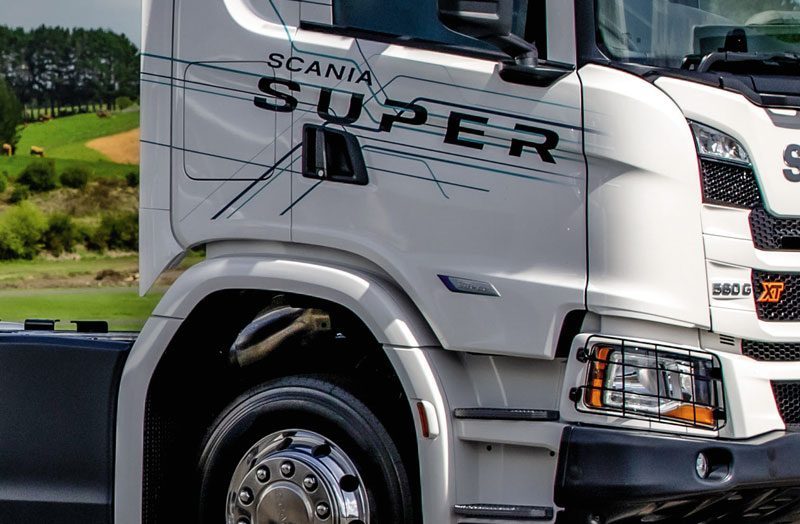
He’s now been with Scania for 27 years. Working his way up the Brazilian business, he reached sales director, a role he held for seven years, after which he spent a year in Sweden, and most recently four years heading up the Portuguese operation.
Different for us it might be, but it has to be good for the market and the customers, having an ambitious and results-focused head at the top, and we all know his lieutenants are dyed-in-the-wool long-termers.
As it was for Rafa, the variation in truck spec here is an initial standout. “People here have a very specific way of speccing the trucks. I believe it’s connected with the culture of the county. You are in contact with the truck – the engine, the auto. They like to get involved – even repair them. For Scania, it gives us a strong positive customer engagement. I was surprised at just how connected with the product the customers are.”
Looking at placement and purpose, we know Mattias Lundholm was ‘Mr Fix it’, and Rafael Alvarenga ‘Mr Aftersales’. Carvalho appears to be ‘Mr P’ … Process and People, with a bent to ensuring what’s promised is delivered consistently across the nation by motivated people.
“We have grown a lot in the last few years and that will continue. My focus will be in four areas. First, customer obsession – continuing to connect with customers and markets. Not only when they buy, but when they service also. Every action on our side needs to be connected with a customer demand. Second, our people. Continuing to develop leadership and technical expertise across the business. We need to retain the people we are attracting into the business and give them a view of the future within the company – it’s important to keep them motivated. Our people and culture team is working hard to deliver the right way of working with our young people and also our people who have joined us from different countries. We need to invest a lot in them. In a company like Scania, it’s not about the opportunities available, it’s about how far people want to take them. Third, process and operational excellence. Strong and well established ways of working to ensure we deliver the right solutions and experience around the country. Not different levels of support in different areas. Lastly, technology. We must use technology to help us deliver solutions to the customer, faster and more efficiently.”
Under his tenure the first wave of post-2018 trucks will begin to reach significant kilometres run. Those trucks will need to be supported. The real test for Scania here is just beginning.
“Yes, that is connected with process and the way of working – well-established, organised ways of working. We have delivered more than 1000 trucks and this year we hope to reach a record again. We have ambitious plans for New Zealand. We are bringing experience in from Europe; that’s partly the reason for my presence, and we need to ensure customers that with growth, the level of support they receive in our workshops will not change. We need to keep our competitiveness in all areas, and consolidate our position as market leader.”
The other challenge he potentially faces in his tenure is the rise and first minor tipping point moment for alternative propulsion vehicles. They will likely provide Scania with opportunities in new markets. As good as that might sound, ensuring our voice is heard in the order queue will be essential.
“We have changed the business in recent times. We have a sales division concentrating on the day-to-day activities, as well as pre-sales and business transformation teams investigating potential opportunities around BEV, alternative propulsion, digitalisation, and technology. The Hampton Downs day was part of that, and the post-event interest has been high, with stronger more detailed conversations taking place. The reach of pre-sales and business transformation goes beyond trucks to supply chain solutions and transport ecosystem.
“In terms of markets the urban market is not an area we have been traditionally strong in, but there are certainly opportunities presenting themselves with BEV.
“Supply? That will not be a problem. What we have done in the last years is proof of our argument we need trucks. Scania pays attention to New Zealand, it’s an important market. All markets are structured with targets, and to achieve those targets you must get the trucks. If we need trucks beyond target I can ‘bang on the desk’,” he says with a laugh.
Speaking to what tomorrow’s trucks look like for us, he wasn’t too concerned at the need to shy away from market-specific trucks.

“Scania has always built trucks for specific markets and I don’t think New Zealand’s history of highly specced trucks will go away. There won’t be a standard New Zealand truck. However, perhaps there is some way of working that might allow a level of standardisation, and above that more specific customisation. But again, we will not lose our way of working, and philosophy of building the right solution for the customer.”
The need to get a lot deeper into the customer’s business in order to get specification right is going to become a regular process going forward, not just for Scania but all OEMs. It will require a delicate touch amidst the potential discomfort for the customers for sure. On this, Carvalho was interesting when speaking to the New Zealand context.
“We were born here as a retail operation, close to the market and customers. It’s not ‘difficult’. Talking to the customers every day is something we cannot lose as we grow. It is our main message when having our EMT meetings, to keep close to the market and retail operations. New Zealand has highly specified customised trucks and you have to be connected to the customer and market to deliver that type of truck. BEVs are just another specialised transport solution. Again, keeping close to the market, and talking to the customers is key.”
Coming from Europe, Carvalho is ideally placed to give us a comparative view on our preparedness for tomorrow’s propulsion systems and what will support them, viewed against Europe, the generally accepted epicentre of advancement. Considering the size of this country and population, he was surprised at how far along New Zealand is, especially in terms of charging infrastructure for cars and light vehicles. He says the interdependence we all have on each other means accelerated progress – a really interesting observation.
“Compared with Portugal, we are a few steps ahead. I’m driving a 100% electric car and comfortable with the location of the charging stations. Trucks are something else, but I believe that will come.”
He says resource within the company was engaged in advocacy for industry requirements going forward.
Victor Carvalho is in place. His may well be the most challenging forward-facing position for any of the recent heads of state at Scania New Zealand. Now the post-2018 wave of trucks are ageing and there’s a whole new world on the horizon to boot. There needs to be support for the existing customer base amidst a whole new world of pre- sales investigation, all the time maintaining the level of relationship customers here demand – selling you a truck on a Friday and then having a beer with you at the Bush Inn on Saturday.
Scania has been savvy at picking the people for the moment; there’s no reason to believe it has not done that again this time.
“I’m hoping to be here for a long time.”
Maybe there’s a message in there.
Read more
Total dedication
0 Comments6 Minutes
Roy Horst
0 Comments3 Minutes


